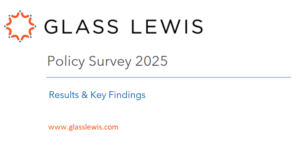Earlier this week, Corp Fin caused a stir when it issued this statement saying that it won’t respond to no-action requests – at least until September 30, 2026 – unless a company is seeking relief under Rule 14a-8(i)(1)’s “not a proper subject under federal or state law.” For some companies with a December 31st year-end, this won’t impact them because they haven’t received any shareholder proposals or they’ve decided to include the shareholder proposals they’ve received in their proxy.
But for those companies with shareholder proposals for which they would have otherwise requested no-action relief from Corp Fin, they have a new analysis to conduct. And part of that analysis is gauging how investors, proxy advisors and other stakeholders might react if they exclude certain types of proposals without the traditional no-action relief. It’s hard to tell right now what the reaction of these interested parties might be. Shareholder engagement is one way that companies might be able to read those tea leaves more clearly, but it might not be feasible for some companies (who can’t get ahold of their largest holders, etc.) or it might not cover all the bases.
There are a lot of unknowns right now as we all digest this dramatic – and sudden – shift in how shareholder proposals are dealt with by companies. And one unknown is what companies will decide to disclose about their thinking when they handle proposals, if anything.
There is no requirement to make this type of disclosure – but some companies might find some type of disclosure is useful to show investors and others that they are operating mindfully. Perhaps a sentence or two about the process that a company goes through to evaluate proposals that are excluded pursuant to a substantive basis.
As nicely laid out by Donna Anderson in her interview, one useful type of disclosure about shareholder proposals is to lay out the reasons why a company responds the way it does about a particular proposal, including how much it would cost the business and “this is why we don’t want to do it.” Maybe some companies might decide it wants to provide disclosure about shareholder proposals in general – its overall philosophy – or about particular types of proposals.
Or perhaps none of these types of disclosures – particularly given that without Corp Fin’s involvement, the prospect of litigation over proposals looms larger. It’s just food for thought…






















